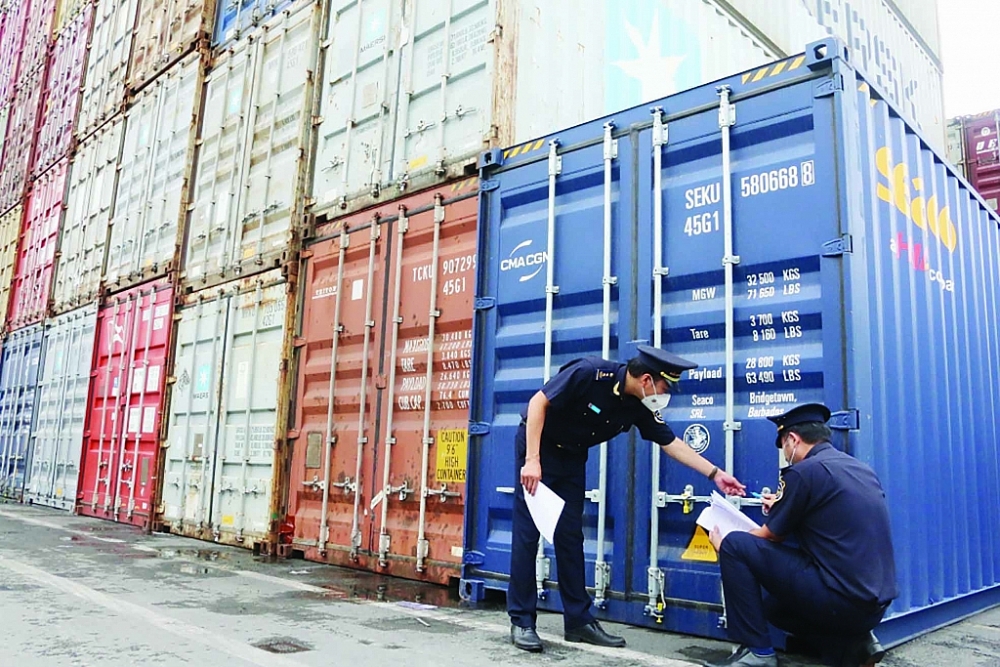In the realm of import-export activities, customs disputes are not uncommon and can lead to significant repercussions for businesses. However, by examining typical disputes, businesses can glean valuable lessons to avoid repeating mistakes and improve their processes. Here are some typical customs disputes and the lessons learned from them.
Dispute 1: Errors in Goods Declaration
A company exporting agricultural products faced significant trouble when their shipment was denied entry by customs due to errors in the goods declaration. The company failed to provide complete information about the origin and tax codes of the products, resulting in hefty fines and shipment delays.
Lesson Learned: To avoid such issues, businesses must ensure that goods declarations are accurate and complete. This includes providing all necessary information about the products, tax codes, origin, and relevant documentation. Utilizing export-import management software to automate the declaration process can help minimize errors.
Dispute 2: Disputes Over Goods Valuation
An electronics import company was required to pay additional taxes due to a dispute over the valuation of their goods. Customs authorities argued that the declared value of the shipment was lower than its actual value, leading to incorrect import tax calculations.
Lesson Learned: Businesses must meticulously prepare documents that prove the value of their goods, including sales contracts, invoices, and other relevant paperwork. Transparency in declaring the value of goods and close cooperation with customs authorities can facilitate the swift resolution of such disputes.
Dispute 3: Quality Inspection Issues
A food export company encountered problems when their shipment was held at the port due to concerns over quality. Customs required a reinspection of the entire shipment to ensure the products met the importing country’s food safety standards.
Lesson Learned: Companies must strictly adhere to the quality and safety standards of the importing market. Conducting pre-export quality checks and obtaining all necessary certifications can help avoid disputes related to product quality.
Dispute 4: Labeling Violations
A fashion import company was fined, and their shipment was held because of labeling violations. The product labels lacked complete information and did not comply with the importing country’s regulations.
Lesson Learned: Businesses must be well-versed in the labeling regulations of their target export and import markets. This includes ensuring labels provide complete information about the product, its origin, ingredients, and other necessary details. Thoroughly checking labels before exporting can prevent disputes related to labeling.
Dispute 5: Intellectual Property Rights Infringement
A consumer goods import company faced a dispute when their shipment was accused of infringing intellectual property rights. Customs held the shipment and required the company to prove that the products did not violate any copyrights.
Lesson Learned: Companies must carefully verify the intellectual property rights of products before importing them. Collaborating with legal experts and using intellectual property verification services can help businesses avoid unnecessary disputes.
From these typical customs disputes, businesses can draw numerous lessons to improve processes and mitigate risks in import-export activities. Meticulous preparation, adherence to regulations, and close cooperation with customs authorities are crucial measures to ensure smooth and sustainable operations.
Detailed Analysis and Preparedness: Detailed documentation and preparedness play a significant role in averting customs disputes. Companies should ensure that every piece of documentation, from invoices to certificates of origin, is meticulously prepared and accurately reflects the contents of the shipment. Automating these processes through software can reduce human error and enhance compliance.
Engage Professional Services: Engaging the services of customs brokers and legal advisors can provide businesses with the necessary expertise to navigate complex customs regulations. These professionals can offer guidance on compliance, help in preparing documentation, and represent businesses during negotiations with customs authorities.
Maintain Up-to-Date Knowledge: Customs regulations are subject to change, and staying informed about these changes is crucial for compliance. Regular training sessions and updates on international trade laws can equip businesses with the knowledge required to avoid disputes.
Implement Robust Quality Control Measures: Ensuring product quality and compliance with international standards can prevent many disputes. Regular audits, inspections, and certifications can demonstrate a company’s commitment to quality and compliance, thereby minimizing the risk of disputes related to product quality and safety.
If you need further assistance or consultancy on customs issues and import-export processes, please contact us. Our team of experts is always ready to support and accompany you in all your international trade activities.
By applying these lessons, businesses can ensure smoother import-export operations, reduce risks, and optimize their business efficiency.

 English
English Tiếng Việt
Tiếng Việt العربية
العربية हिन्दी
हिन्दी Español
Español